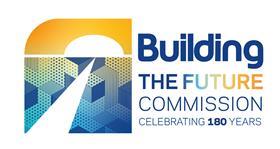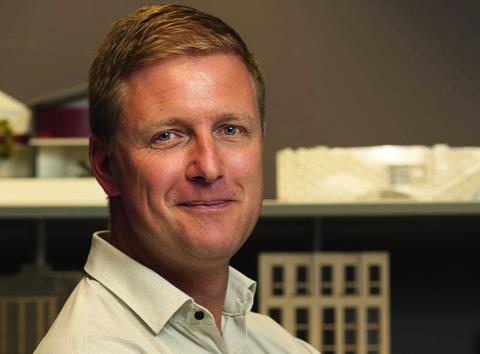Andrew Mellor talks about quality of build, technological change and the need to improve competency in the industry

║├╔л╧╚╔·TV magazine is 180 years old this year. What lessons about the built environment should we take from the past?
The focus on quality control, the oversight the architect used to have on traditional projects which ensured construction quality and that the design was delivered as intended.
The use of natural and local materials, then its was due to not being able to access wider materials, today it is about reducing environmental impact. Constructing durable buildings which last 100+ years (or 100s of years would be even better), not the disposable in decades buildings we construct today.
Who or what has had the most positive impact on construction in the past couple of decades?
The Grenfell tragedy. It has focussed the mast majority of the industry onto quality, competency and risk management. It took a tragedy to do this.
What does the construction industry do well and why?

It builds some high-quality buildings, both from an architectural and construction perspective.
This typically works, when collaborative working has been successful on a project It needs an engaged client, enthusiastic and talented design team and a contractor who is focussed on quality and not just profit.
What does the construction industry do badly and why?
It builds some very poor-quality buildings. This happens typically where the client and contractor are more focussed on reducing costs than quality. We have seen that improve post Grenfell but will a recession reverse that progress?
WhatтАЩs the biggest change youтАЩve seen during your career in construction?
Using computers, software and AI for design and analysis. Progression has been rapid in recent years and we must all embrace it otherwise we will be left behind.
What do you think will have changed by the time ║├╔л╧╚╔·TV celebrates its 200th anniversary?
A change of government (at least one). So, we may see policy and legislation change again and again. It is difficult for the industry to keep track of all the recent and forthcoming changes and to respond to them. Further change is inevitable, lets hope its for the good of the industry, environment and those who occupy the buildings we design and construct.
If there is one thing individuals and firms could do to improve construction and the built environment what would it be?
Improve knowledge and competency. This is about upskilling individuals, having robust processes for delivery and checking the quality of that delivery as well as continual assessment of the individuals and organisation.
What is the best thing government can do to support the industry?
Provide worthwhile and robust competency schemes with accreditation. Leaving it to industry alone will only allow multiple competency routes which will dilute the benefit as the industry will not know which is the better to use and to select when appointing third parties.
What do you hope the ║├╔л╧╚╔·TV the Future Commission can achieve? And what role can you play?
I hope it can raise wider awareness of ║├╔л╧╚╔·TV Safety issues and how the industry should respond to them. Too many do not know what the immediate legislation is and how to respond to it, never mind what is coming in 12 months or beyond. It should also explore and communicate safety issues beyond fire, such as structure, overheating, mould etc.
>>See also: Full ║├╔л╧╚╔·TV the Future Commission line-up unveiled
>>See also: Click here for more about the project and the commissioners
What is your favourite building/piece of infrastructure and why?
St PaulтАЩs Cathedral, I studied at sixth form and at the time the exterior was being conserved so I had the opportunity to climb all over it and get inside the dome. I have always been fascinated by it. It was obviously born out of a previous building safety crisis.
Tell us one thing you are passionate about outside of work
Environmental matters. Sustainability is key part of my job but I use outside of work to practice what I preach (including retrofitting my own home) and learn about environmental matters outside of my core discipline so I can use that knowledge within my work at PRP.
Andrew Mellor, partner at PRP
║├╔л╧╚╔·TV the Future Commission

The ║├╔л╧╚╔·TV the Future Commission is a year-long project, launched to mark ║├╔л╧╚╔·TVтАЩs 180th anniversary, to assess potential solutions and radical new ways of thinking to improve the built environment.
The major projectтАЩs work will be guided by a panel of 19 major figures who have signed up to help guide the commissionтАЩs work culminatuing culminate in a report published at the end of the year.
The final line-up of commissioners includes figures from the world of contracting, housing development, architecture, policy-making, skills, design, place-making, infrastructure, consultancy and legal.
The commissioners include Lord Kerslake, former head of the civil service, Katy Dowding, executive vice president at Skanska, Richard Steer, chair of Gleeds, Lara Oyedele, president of the Chartered Institute of Housing, Mark Wild, former boss of Crossrail and chief executive of SGN and Simon Tolson, senior partner at Fenwick Elliott. See the full list here.
The project is looking at proposals for change in eight areas:
- Education and skills
- Housing and planning
- Infrastructure
- ║├╔л╧╚╔·TV safety
- Project delivery and digital
- Workplace culture and leadership
- Creating communities
>> EditorтАЩs view: And now for something completely positive - our ║├╔л╧╚╔·TV the Future Commission
>> Click here for more about the project and the commissioners
║├╔л╧╚╔·TV the Future will also undertake a countrywide tour of roundtable discussions with experts around the regions as part of a consultation programme in partnership with the regional arms of industry body Constructing Excellence. It will also set up a young personтАЩs advisory panel.
We will also be setting up an ideas hub and we want to hear your views.
>> Email buildingfuturecommission@building.co.uk to get in touch



























No comments yet